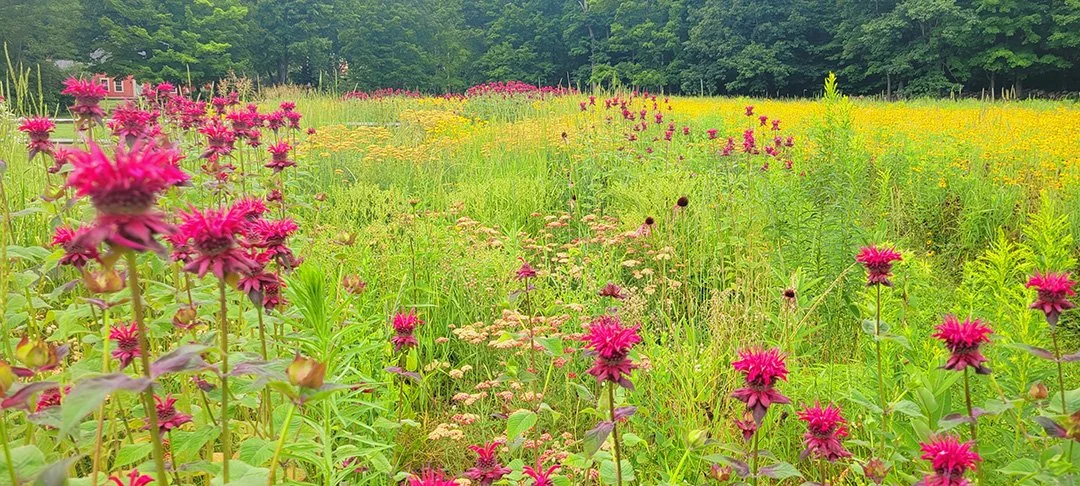PLANNING WILDFLOWER MEADOWS
Replacing lawns with wildflower meadows IS the wave of the future. Not only does this type of ground cover decrease the need for gas-guzzling mowers, but grasses and wildflowers offer benefits to pollinators, birds, grazing mammals, insects, and the greater ecosystem. At Evernest Designs, we create wildflower meadows without the use of herbicides. The process takes about a year to prepare, but maintains the health of your ecosystem and your family. The pictured meadows are in their first year of growth. The above image is a seeded meadow. Below is a community project I worked on using perennial plugs. Each method has its pros and cons. The pro of the plugged meadow method, is better control of the organization of the plants. The seeded method tends to grow thicker and more diverse even in the first year. We had a particularly strong growing season with these pictured meadows, with lots of natural rainfall. This helped with early establishment of the forms over the grass species.
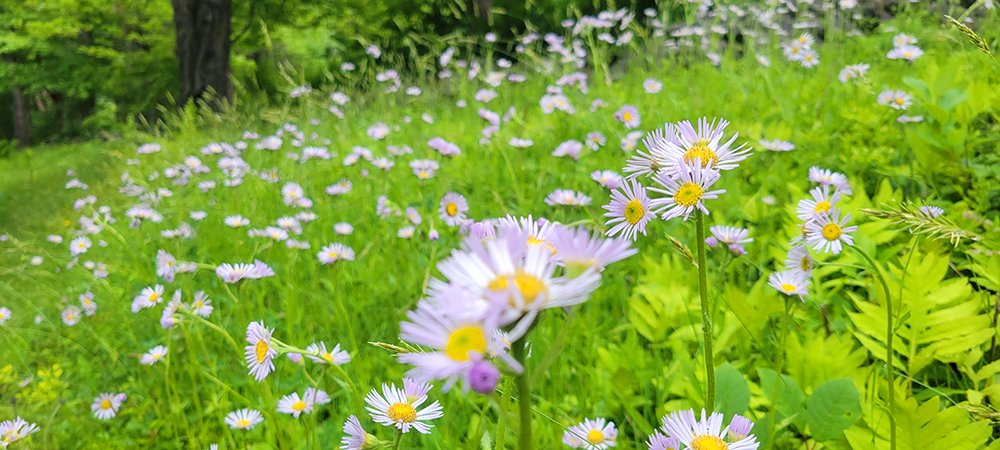
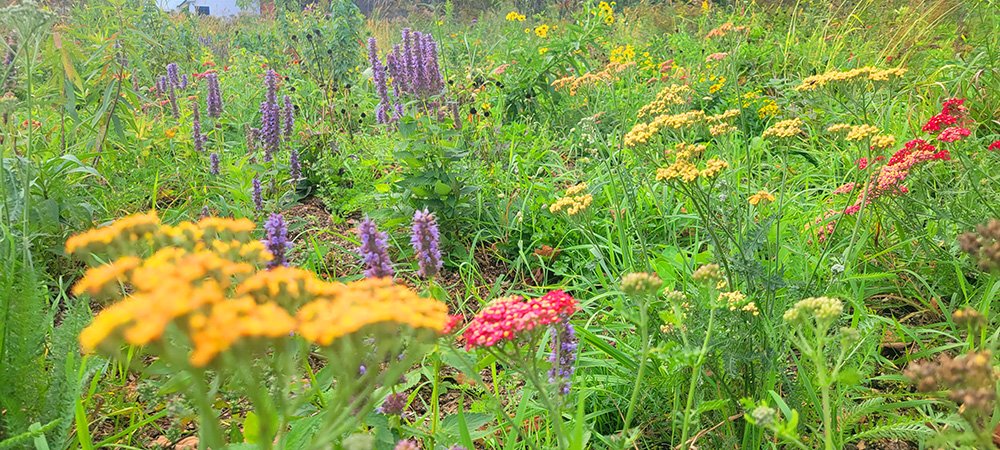
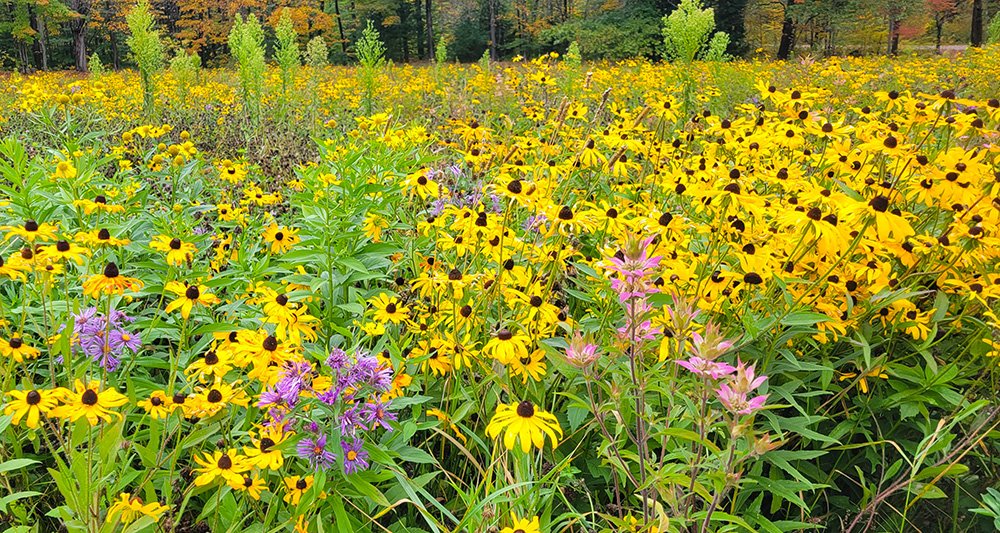
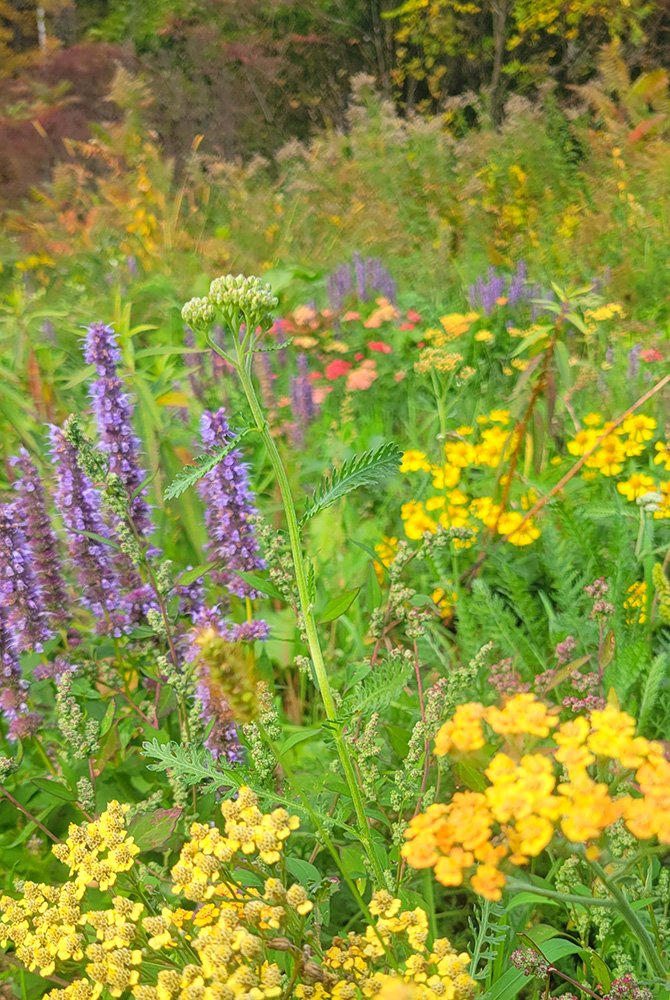
Collaborators: Seeded meadow - Russell Record (tractor work, prep, fertilizer, and seed spread)
Plug meadow - The Water Street Land Use Committee and volunteers

